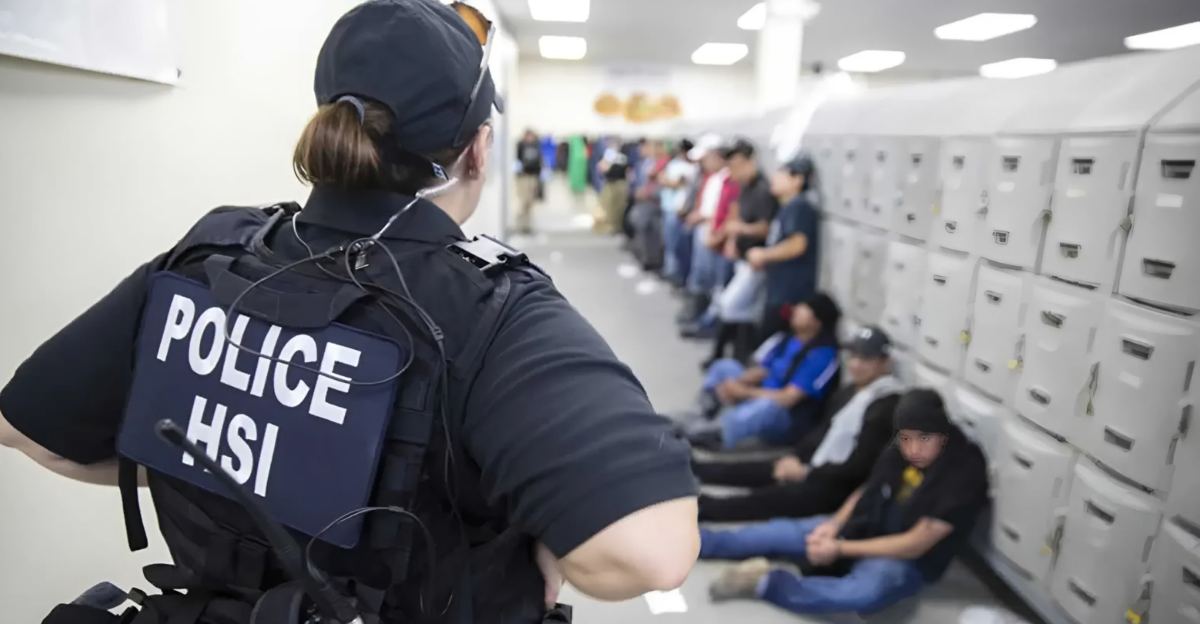
The news came as a shock: U.S. Immigration and Customs Enforcement (ICE) was ordered to suspend most workplace raids on farms, hotels, and restaurants—a decision that rocked industries, immigrant communities, and political circles alike.
It wasn’t just an administrative order; it was a shift that has far-reaching consequences, touching dinner plates, supermarket shelves, and the very fabric of the American workforce. Why suspend the controversial raids now, and what does it mean for employees, business owners, and the average consumer?
Let’s break down how this single decision is already transforming the American landscape, one industry at a time.
Behind the Curtain: Why Did ICE Raids Intensify in the First Place?

To understand this suspension, we need to go back to the start. Earlier this year, the Trump administration doubled down on its promise to deport millions of illegal immigrants, increasing ICE raids at workplaces nationwide.
The push was driven by strict advisors who insisted that only a showy exhibition of enforcement—3,000 arrests a day—would fulfill the campaign’s promises and dissuade potential migrants.
But as the raids expanded from city blocks to rural fields and hotel dining rooms, the expenses began piling up unexpectedly.
The Economic Engine: How Farms, Hotels, and Restaurants Were Targeted

It is no accident that these sectors found themselves in the sights of ICE. Agriculture, hospitality, and food preparation are three of the most immigrant-dependent industries in the country, with as many as half of all farm workers estimated to be here illegally.
This workforce is often invisible but essential, making beds, kitchens humming, and farms productive. The logic was simple: target where most of the undocumented population works, and you’ll make a dent in illegal immigration.
But the reality proved far messier.
The Ripple Hits Home: How Americans Are Already Feeling the Effects
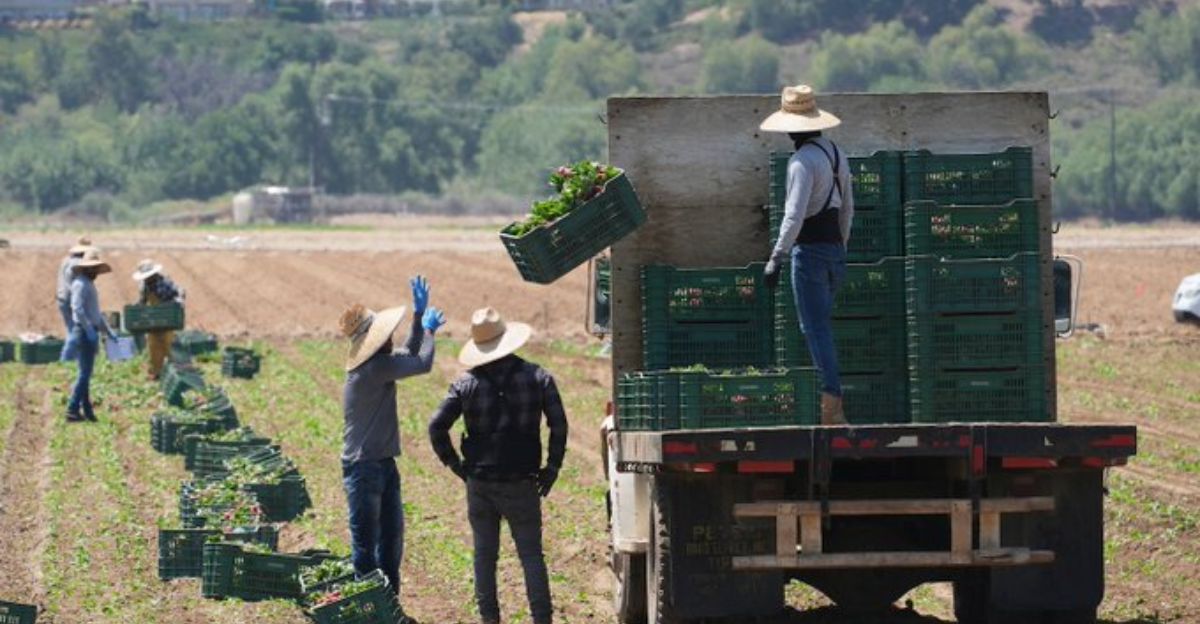
The early raids hit immigrant communities hard, spreading both shock and fear, but the impact didn’t just affect immigrants—soon the whole country felt it.
California farm bureaus reported that roughly 45% of their workers vanished, leaving crops to rot in the fields, threatening the nation’s food supply. Restaurants and hotels began to struggle financially, with some being forced to cut back on hours or shut down entirely.
On social media, viral videos and threads highlighted the shock and distress of these raids: businesses lost staff members, families were torn apart, and customers were left wondering why their favorite places were abruptly shut down.
The Policy Pivot: Why Did ICE Suddenly Pull Back?

So why was there a sudden suspension of these raids? The reason is as much political as it is pragmatic. When the raids risked damaging the industries that make up the backbone of the American economy—and, significantly, President Trump’s political base—industry leaders cried out.
Owners of hotels and farms, some of whom were veteran Republican donors, warned that the depletion of skilled immigrant workers was unsustainable. Trump himself confessed on Twitter that “very good, long-time workers” were almost irreplaceable.
Therefore, suspending the raids was more of a realistic strategy than a change of heart, an enforced recognition that economic necessity trumps ideology, at least when it comes to the country’s food and hospitality sectors.
Filling the Gaps: How Employers and Workers Are Adapting

Now that raids have been suspended, a strange mix of relief and apprehension has settled over affected industries. Some employers secretly re-hire employees who fled in fear, while others double down on automation or opt for lawful guest worker programs.
Yet the damage is done: the workforce’s confidence in the current administration has been shattered, with many workers still afraid of returning, fearing the respite is temporary.
Meanwhile, advocacy groups are calling for radical changes to protect workers and businesses from the whiplash that policy fluctuations inflict.
The Economic Dominoes: What Happens When the Workforce Vanishes?
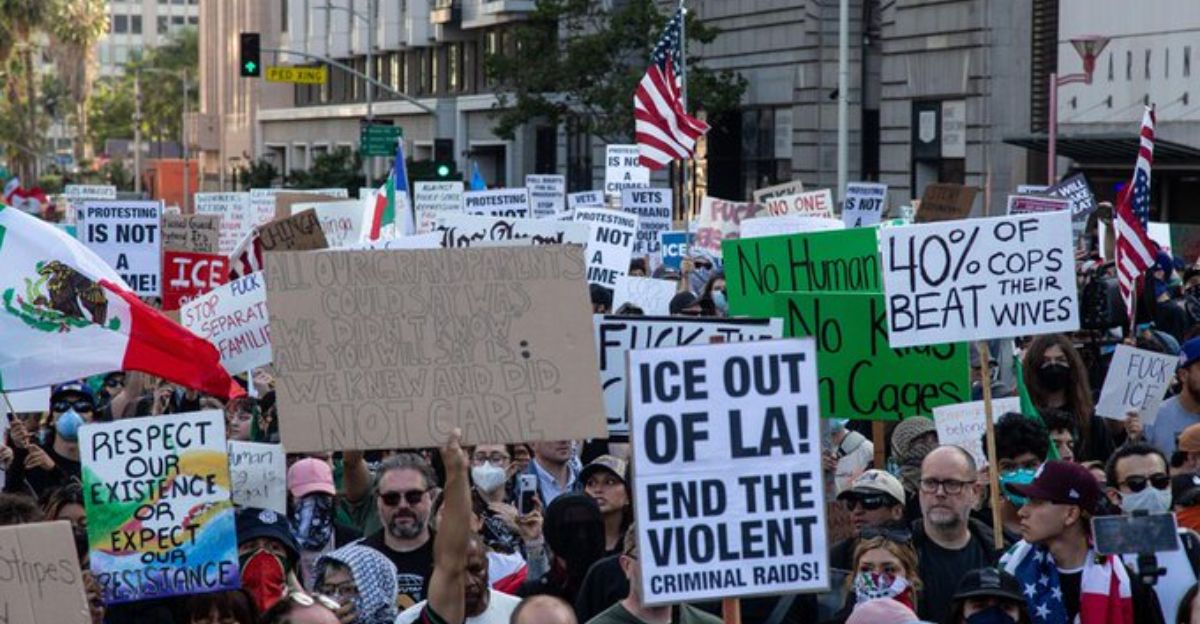
The facts are irrefutable. A 25% drop in farmworker employment, due to fear of raids, would leave millions of pounds of fruit and vegetables unpicked, pushing up prices and leading to shortages in supermarkets nationwide.
The hotel industry, itself battered by pandemic-related shutdowns, faces the same dangers: fewer workers mean longer queues, reduced services, and lost revenue.
Economists warn that the ripple effects of these raids might cut billions of dollars from the country’s GDP, with spending power and tax contributions from undocumented workers estimated at nearly $300 billion annually.
Real Voices: The Human Cost of Policy Whiplash

Ultimately, when you take a step back from the statistics, the story is actually about human beings. In Los Angeles, immigrant neighborhood vendors report that business has “basically collapsed” with customers and workers staying home in fear.
A Fresno farm owner refers to the raid suspension as a “sign of relief,” but wonders how long it will last. On Reddit, people argue about the morality and economics of undocumented workers, with one commenter noting the irony that companies most reliant on immigrant labor tend to be Republican.
For every business breathing a sigh of relief at the stay of execution, there is a family that lives in both limbo and fear.
The Political Chessboard: Lawmakers, Lobbyists, and the Next Moves
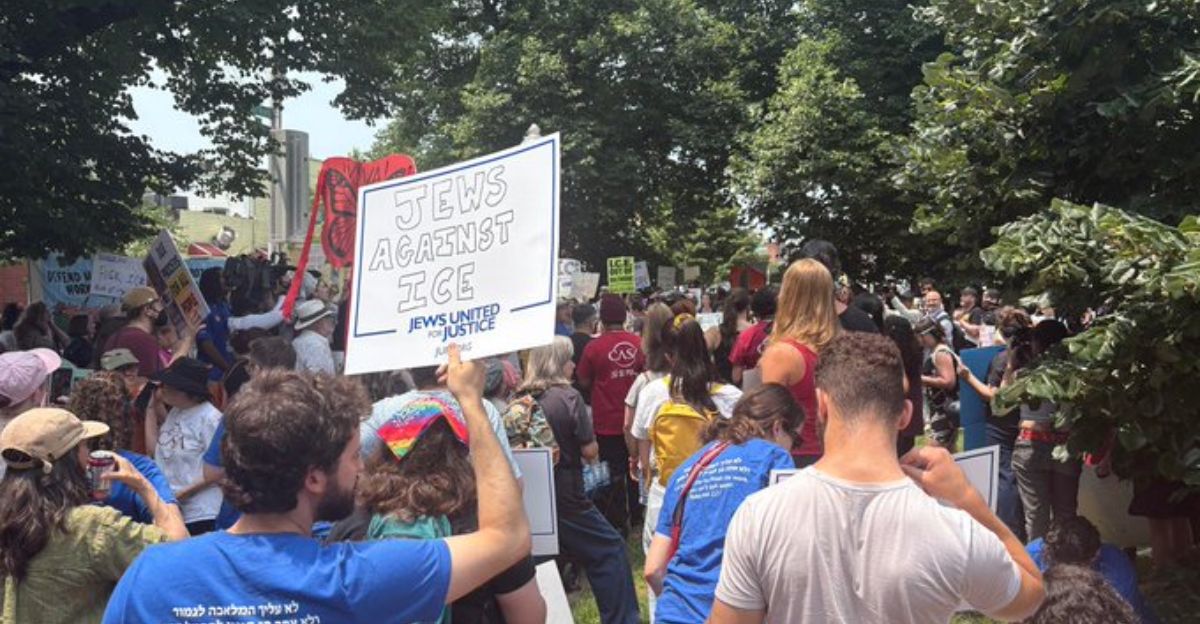
The ICE moratorium has triggered a stampede of responses in Washington and across the country. Members of farm states are urging permanent exemptions or legal pathways for essential workers.
Humanitarian organizations urge more compassionate enforcement and a path to citizenship, while hard-liners decry the shutdown as a break with campaign promises.
Further, the debate spilled over onto cable television, Twitter, and even the campaign trail, as both sides rushed to define what “security” and “prosperity” really mean for America.
What Now? Navigating the New Normal

In the meantime, the respite is a fragile truce as everyone knows that it won’t last indefinitely. Employers are deciding whether to invest in new hires or brace for another cycle of enforcement.
Employees are nervous and unsure whether the next knock on the door will mean a job opportunity or deportation. Consumers may see increased prices and fewer choices, especially if worker shortages continue in both tourist and harvest seasons.
The only certainty right now is uncertainty, with policy decisions swinging back and forth between rhetoric and reality.
Lessons Learned: How Can Americans Reduce the Impact?
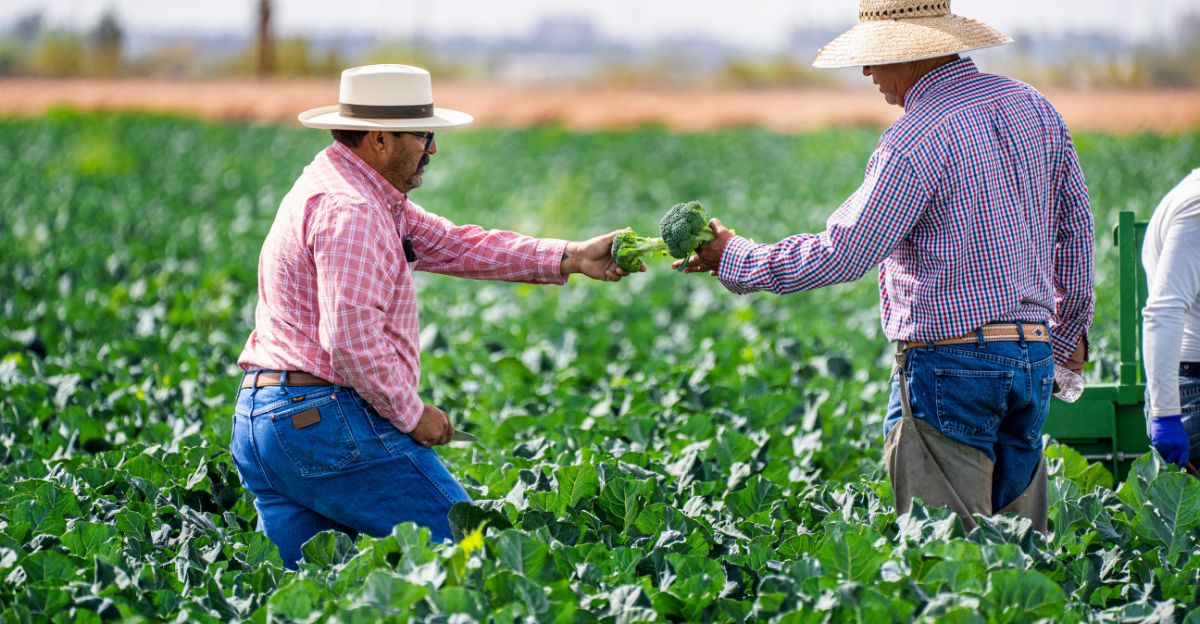
If there is a silver lining, it’s that the crisis has created a national wake-up call about the true cost of mass deportation—not just for illegal laborers, but for all Americans who benefit from cheap food, clean hotel rooms, and lively restaurants.
However, the solution won’t be simple. Pundits suggest a mix of responsible reforms: expanding legal work visas, investing in automation where feasible, and—most crucially—building a more predictable, more humane immigration system that balances security with economic necessity.
Meanwhile, the best tools Americans have to weather the storms are to shop locally, learn about the policies that affect them, and engage in political debate.
The Big Picture: What This Means for America’s Future
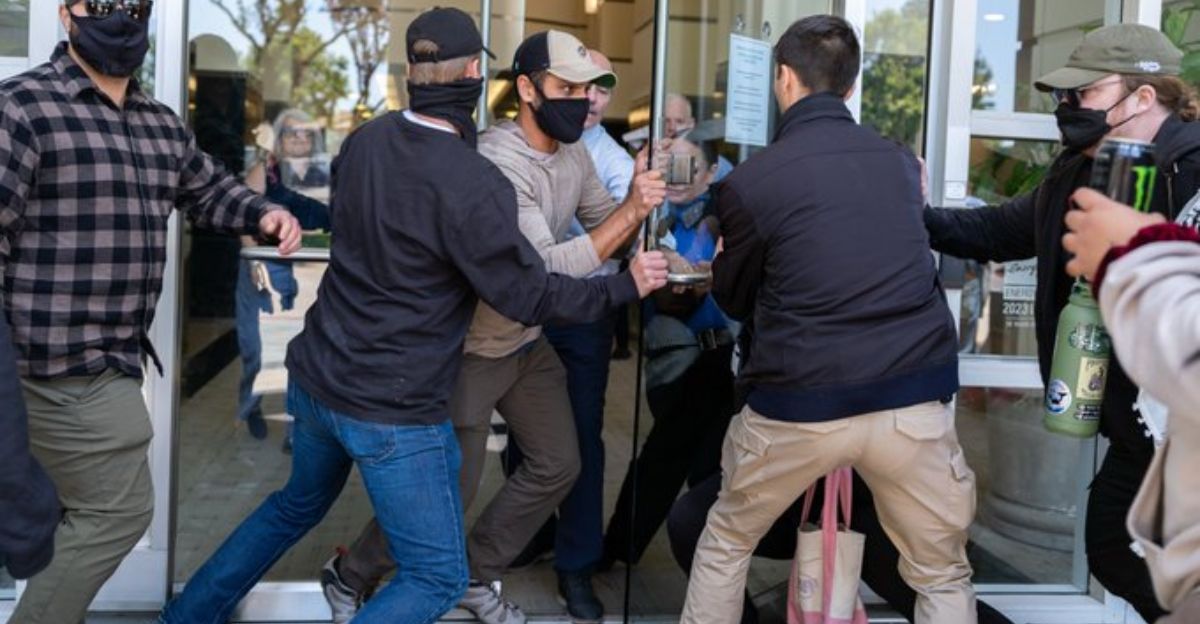
If you widen your view, the ICE raid suspensions are greater than a policy shift—they reflect the nation’s strengths and weaknesses. They illustrate how deeply America’s prosperity is intertwined with the labor of those too often relegated to the margins and how quickly political promises can collide with economic necessity.
Whether the hiatus is a pivot or merely a pause, the ripple effects will continue outward—through kitchens and Congress, fields and factories, influencing the decisions and dilemmas of a nation still grappling with what it means to be both secure and welcoming, both legal and compassionate.
